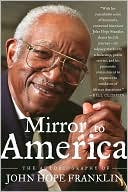Like most people, I went through school thinking that history was history was history. Events happened on specific dates, certain people were involved, and that was that. I was primarily concerned about learning the facts and making a passing grade. I thought little about the social and political context or consequences of those historical events. Little did I realize that history was not just about facts. It is also about perspective. The telling of history is a personal and political activity, because history is always told through the experience and perspective of the teller. What I learned about world history, American history, and Texas history was as much an interpretation as it was a description.
 The recent standards adopted by the state board of education for the teaching of history, economics, and social studies is a clear example of how perspective shapes facts. According to a variety of news sources, the final standards are the result of the views and values of one faction, conservatives, prevailing over the views and values of another faction, mostly moderates, including racial minorities. To no one’s surprise, those factions tended to divide down political lines of Republican and Democrat.
The recent standards adopted by the state board of education for the teaching of history, economics, and social studies is a clear example of how perspective shapes facts. According to a variety of news sources, the final standards are the result of the views and values of one faction, conservatives, prevailing over the views and values of another faction, mostly moderates, including racial minorities. To no one’s surprise, those factions tended to divide down political lines of Republican and Democrat.
What that means is that our students will be learning a history that, according to board member, Mary Helen Berlanga, has been whitewashed. It’s also been Christianized and de-liberalized. For example, students will learn more about the Christian influences in our nation’s history and less about the founding principle of religion freedom. Joe McCarthy will be made more credible. The Moral Majority and the conservative resurgence in the 1980s and 90s will be treated as important historical phenomena. Phyllis Schlafly’s influence in that resurgence will be included, but the influence of Thomas Jefferson’s writings during the American Revolution will not.
When you have a group advocating one narrow perspective on history, a lot of influential people and a lot of important views get downplayed or eliminated, a lot of important history gets ignored.
 This is not a new battle. Noted American historian, John Hope Franklin, in his autobiography, “Mirror to America,” described a similar situation in 1966 when he and some colleagues were invited to write a history text for consideration by the California board of education. Their text included information about how slavery, a 400-year period in our history, had shaped our national story. The book also described the civil rights movement, still in its early stages, as an important extension of that long, painful history. The response was dramatic. “In some communities,” he wrote, “a veritable tug-of-war broke out between groups that advocated a more celebratory, which to them meant patriotic, past, and those that sought a more critical approach, encouraging a diversity of opinion and value in the belief that this would teach tolerance.” A publicity campaign was waged against Franklin accusing him of being un-American, and his textbook was ultimately rejected.
This is not a new battle. Noted American historian, John Hope Franklin, in his autobiography, “Mirror to America,” described a similar situation in 1966 when he and some colleagues were invited to write a history text for consideration by the California board of education. Their text included information about how slavery, a 400-year period in our history, had shaped our national story. The book also described the civil rights movement, still in its early stages, as an important extension of that long, painful history. The response was dramatic. “In some communities,” he wrote, “a veritable tug-of-war broke out between groups that advocated a more celebratory, which to them meant patriotic, past, and those that sought a more critical approach, encouraging a diversity of opinion and value in the belief that this would teach tolerance.” A publicity campaign was waged against Franklin accusing him of being un-American, and his textbook was ultimately rejected.
It appears we haven’t come very far in Texas. The new standards appear to be a celebration of the conservative White Christian perspective of our country.
In an act of great irony, the board deleted a requirement that sociology students “explain how institutional racism is evident in American society.” Institutional racism, the network of institutional and societal structures, policies, practices and behaviors (in this case public education) which intentionally or unintentionally create advantages and benefits for one group of people (in this case white Christians) and disadvantages and hindrances for other groups, is rarely seen and therefore easily dismissed by those whose position is advantaged. Those who are disadvantaged, misrepresented, or even omitted see it clearly. By eliminating from the curriculum an exploration of “institutional racism”, the school board has presented us all with a crystal clear example of it.
Printed in the Abilene Reporter News, Sunday, March 10, 2010
0 Comments until now
Add your Comment!